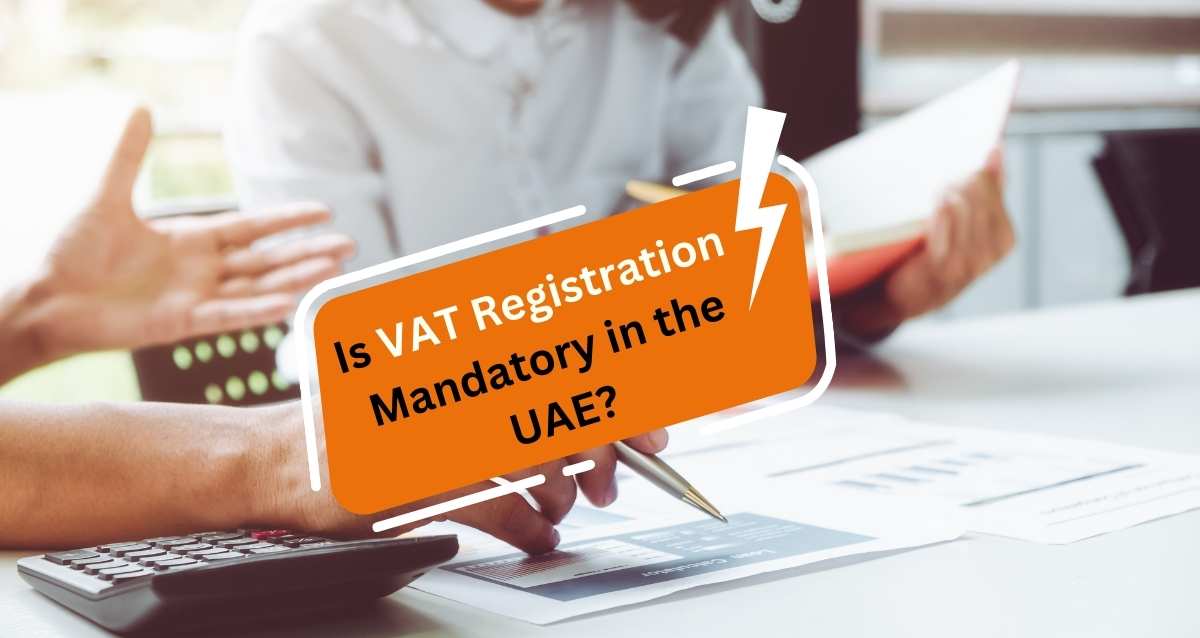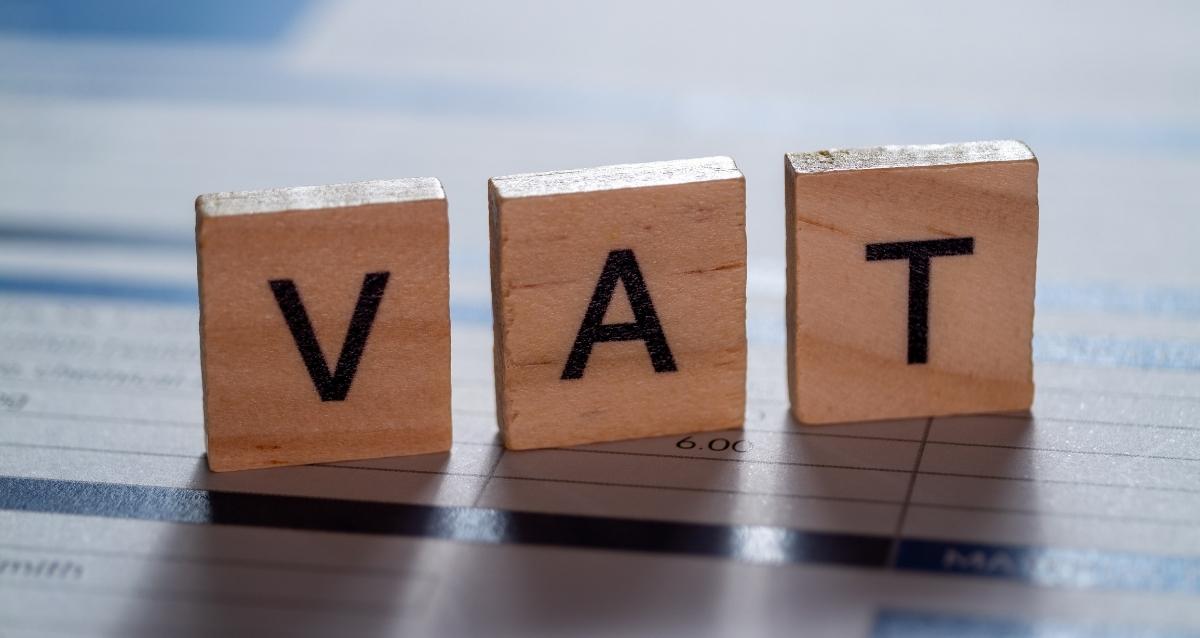Guide for VAT Registration in the UAE
VAT was introduced in the United Arab Emirates (UAE) on 1 January 2018. VAT is a tax levied based on the consumption or usage of services by the end consumer. VAT is a general consumption tax imposed on most goods and services in the UAE. After the introduction of VAT in 2018, VAT implementation was carried out as a coordinated effort within the GCC region, with regional policy development shaping its application in the UAE. VAT is paid by the end customer, there is always a supply chain involved in this. As part of the supply chain, businesses collect VAT from customers on behalf of the government. VAT is a mandatory requirement to be registered as per VAT law introduced by the Federal Tax Authority (FTA). VAT legislation serves as the legal framework governing VAT registration and compliance in the UAE. Both local businesses, offshore companies, and international corporations in the UAE must register for VAT within 30 days once the mandatory threshold is crossed. The person obligated to register is the individual or entity responsible for collecting and remitting VAT according to UAE law.
Introduction to Value Added Tax
Value Added Tax (VAT) is an indirect tax applied to the value added to goods and services at each stage of the supply chain, ultimately borne by the end consumer. Introduced in the UAE in January 2018, VAT is implemented at a standard rate of 5% and is overseen by the Federal Tax Authority (FTA). The FTA is responsible for ensuring that businesses comply with VAT laws and regulations, including the proper collection and remittance of VAT.
Businesses operating in the UAE are required to register for VAT if their taxable supplies and imports exceed the mandatory registration threshold of AED 375,000 within a 12-month period. This includes the total value of taxable supplies and imports, not just sales. For businesses whose taxable supplies and imports or taxable expenses exceed the voluntary registration threshold of AED 187,500, voluntary registration is available. Registering for VAT, even voluntarily, can enable start up businesses to claim input tax credits and enhance their credibility in the market. Understanding the registration threshold of AED 375,000 for mandatory registration and AED 187,500 for voluntary registration is essential for VAT compliance and avoiding penalties under UAE VAT laws.
✅ Taxable supplies:
Refers to goods and services that are subject to VAT, the supply can be standard-rated or zero-rated. Registered businesses can build credibility with clients and partners, enhancing trust in their operations.
✅ Place of supply of UAE:

The place of supply can be within UAE or outside UAE depending on where the movement of goods is happening and where the service is being rendered, it can be within UAE if the service is being rendered within UAE VAT rate applicable would be standard rated @5% or zero rated or exempted. if its export of service will be considered as zero-rated, service rendered outside can also be out of the scope of VAT as well depending upon where the service is being rendered and certain special cases of services.
If the Place of supply is outside the UAE:
VAT applicability is out of scope in case the goods are located outside the UAE at the time of supply. In the case of services, the default place of supply is the place of residence of the service provider whereas, in certain special cases, the default rule changes. If the place of supply of services is outside UAE, then UAE VAT is not applicable.
Requirements to be registered for VAT and the mandatory registration threshold
➡️ Mandatory threshold:-
Any business whose taxable supplies and imports exceeds a threshold of AED 375,000 in the last 12 months or is expected to be exceeded in the coming 30 days must mandatorily register for VAT within 20 business days. The mandatory registration threshold for VAT in the UAE is AED 375,000. If not done within the timeline, there will be an administrative penalty of AED 10,000 along with variable penalties in terms of late VAT filings as well as penalties on VAT payable. Businesses are liable for due tax from the date they were required to register. In addition, unpaid tax can result in further fines and penalties for failing to pay VAT on time.
➡️ Voluntary threshold: -
Businesses whose taxable supplies and import value are below AED 375,000 but over AED 187,500 in the last 12 months can register voluntarily for VAT. The voluntary registration threshold for VAT in the UAE is AED 187,500. Businesses can choose to register voluntarily even if not required by law.
Please note that a registration threshold is applicable for residents only. In case the goods delivered or services provided by a non-resident in UAE (to the consumer), the non-resident shall register from the first supply. Non-UAE-resident businesses must register for VAT in the UAE regardless of the value of their taxable supplies and imports.
After successful registration, the business receives a VAT certificate from the Federal Tax Authority as official proof of registration.
Documents Required for Registration
To complete the VAT registration application in the UAE, businesses must gather and submit several key documents. These include a valid trade license, passport copies and Emirates ID of the business owners or partners, and proof of business address such as a tenancy contract or utility bill. Additionally, businesses need to provide bank account details to facilitate VAT payments and refunds, as well as financial statements or documents showing estimated turnover to demonstrate the scale of taxable supplies. Information about the nature of business activities and expected taxable supplies is also required. Submitting these documents accurately is crucial for the Federal Tax Authority to review the application and issue a Tax Registration Number (TRN), which is necessary for all VAT-registered businesses.
VAT return filing
Once a company is registered for VAT, and they have received the Tax Registration Number (TRN) approved by FTA, they will be required to do VAT return filing every quarter, 4 times a year, from the date of the effective date of VAT, as there will be a date mentioned in the certificate. To register for VAT in the UAE, a business must create an account on the Federal Tax Authority (FTA) web portal. After submitting a VAT registration application, it will take approximately 2 – 3 working weeks to receive the Tax Registration Number (TRN). For Tax Group Registration, only the representative company of the group can apply for the registration. A VAT registered business is required to submit regular VAT returns and maintain compliance with FTA regulations.
There will be a deadline to submit the VAT return every quarter within 28 days from the end of the tax quarter, in general, and it can vary depending on the holidays which may fall on the 28th day. VAT registered businesses generally must report VAT charges and payments online and handle VAT payables and reclaimations as part of their compliance obligations.
VAT payment is the difference between what is collected and what is spent. The VAT collected from customers must be reported and remitted to the government, after deducting the VAT paid on business inputs. If a business has paid more VAT on purchases than it has collected on sales, it can reclaim the difference; if it has collected more VAT, it must pay the excess (more VAT) to the government. Voluntary registration for VAT can benefit startups and small businesses by allowing them to claim input tax credits on purchases.
✔️ Late filing penalties
The businesses that are registered for VAT should do their VAT return filing within the timeline stipulated as per UAE VAT law.
If the same is not done within the timeline there will be penalties as below:-
✔️ Late VAT return filling:-
If businesses miss filing their VAT return by the deadline there will be an administrative penalty of AED1000/- if the same is repeated within 24 months the penalty increases to AED2000/- for the upcoming month till they file the VAT return.
✔️ Penalty on VAT is payable:-
If there is a VAT to be paid once we file the return same payment needs to be made before the 28th of the tax period, if any business misses doing that there will be a penalty of 2% for the first month if same is not cleared within first-month penalty will be increased to 4% from the second month onwards. The month can be a full month or part of the month.
VAT tax rates in UAE
✅ Standard rate
The default VAT rate applied locally on goods and services is 5%. Examples can be the sale and purchase of goods locally in the UAE, consultancy services provided locally, the event was conducted locally in the UAE, commercial properties, and short-term residential properties on rent. Unlike sales tax, which is only applied at the final sale to the end consumer, VAT is applied at each stage of the supply chain. Businesses and individuals are also required to pay VAT on imported goods and services in the UAE.
✅ Zero rated:-0%
There are a few services where VAT is charged at 0 rated, such as export of services, export of goods, and consultancy provided from UAE to a non-resident who is the beneficial recipient of the service and the recipient is not present in UAE at the time of service being rendered. Below are few examples; VAT will be charged at 0% for certain supplies including exports of goods and services to outside the GCC and international transportation.
-
International transportation of passengers and goods.
-
Certain educational services are based on the approved curriculum.
-
Certain supplies of goods and services in the medical field are 0 rated as they are prescribed by the approved medical practitioner.
-
Investment grade precious metals, such as gold and silver with a purity of 99% or more, are zero-rated for VAT purposes.
Certain educational services, along with related goods and services, are subject to a zero rate of VAT.
Please keep in mind that Input VAT can be claimed in the case of zero-rated supply as well.
Exempt supply
An exempt supply is a supply where there is no VAT charged or paid examples can be:-
-
Bare land
-
local passenger transport
-
Financial services
-
Residential accommodations – First supply is 0%
Residential properties are generally exempt from VAT, ensuring that VAT does not constitute an irrecoverable cost for buyers.
Certain goods and services are exempt from VAT in the UAE, including the supply of some financial services, residential properties, bare land, and local passenger transport. Supplies relating to certain healthcare services are exempt from VAT in the UAE.
Any exempt supply provided to a non-resident is considered zero-rated.

Based on exempt supply, the supplier cannot register for VAT. However once registered based on other eligibility criteria, while filing the VAT return, the exempt supply is required to be VAT return. At the time of VAT return filing, any input VAT related to the exempt supply is required to be disregarded.
Tax Group Registration
Tax Group Registration offers an efficient solution for related businesses operating under common control in the UAE. By forming a tax group, two or more entities can register together for VAT purposes, allowing them to submit a single VAT return and operate under one Tax Registration Number (TRN). To qualify, the businesses must be related parties and demonstrate a significant level of economic and financial integration. This arrangement streamlines VAT compliance, reduces administrative workload, and simplifies the management of VAT obligations across the group. The Federal Tax Authority reviews applications for tax group registration and, upon approval, issues a unified TRN for the entire group, making VAT administration more straightforward for eligible businesses.
VAT Registration Deadline
While there is no fixed annual deadline for VAT registration in the UAE, businesses must be vigilant about their taxable supplies and imports. Once a business exceeds the mandatory registration threshold of AED 375,000, it is required to register for VAT within 30 days. Failing to register for VAT within this period can result in significant penalties and fines imposed by the Federal Tax Authority. Businesses that anticipate their taxable supplies or imports will soon exceed the mandatory registration threshold are encouraged to register for VAT voluntarily to ensure compliance and avoid last-minute issues. Timely registration is essential for maintaining good standing with the FTA and ensuring smooth business operations.
The Role of a Tax Agent
A tax agent plays a vital role in helping businesses navigate the complexities of VAT registration, compliance, and ongoing VAT returns in the UAE. Tax agents are authorized professionals who guide businesses through the VAT registration process, assist with the accurate preparation and timely submission of VAT returns, and provide expert advice on VAT laws and the latest legislation. By engaging a tax agent, businesses can ensure that their VAT affairs are managed in accordance with the law, reducing the risk of errors, penalties, and non-compliance. Tax agents also keep businesses updated on changes in VAT regulations and help streamline the registration process, allowing business owners to focus on their core activities while maintaining full VAT compliance.
Conclusions
Registration for VAT is mandatory once the taxable supply or export exceeds, or if they are expecting the same to be achieved in the upcoming 30 days it's mandatory to register for VAT, to avoid an administrative penalty of AED10,000/*-. After reading the above blog we are sure about when to register for VAT, why Is it mandatory what penalties we can avoid if we follow the UAE VAT law. We have explained about taxable supplies when we need to charge standard rated when the supply will be out of scope and when the supply would be zero-rated. Businesses must maintain VAT compliance in accordance with the Federal Tax Authority (FTA) to avoid penalties. Non-compliance with VAT laws in the UAE can lead to penalties of up to AED 50,000.
To learn more about Is VAT Registration Mandatory in the UAE?, book a free consultation with one of the Flyingcolour team advisors.
Disclaimer: The information provided in this blog is based on our understanding of current tax laws and regulations. It is intended for general informational purposes only and does not constitute professional tax advice, consultation, or representation. The author and publisher are not responsible for any errors or omissions, or for any actions taken based on the information contained in this blog.



